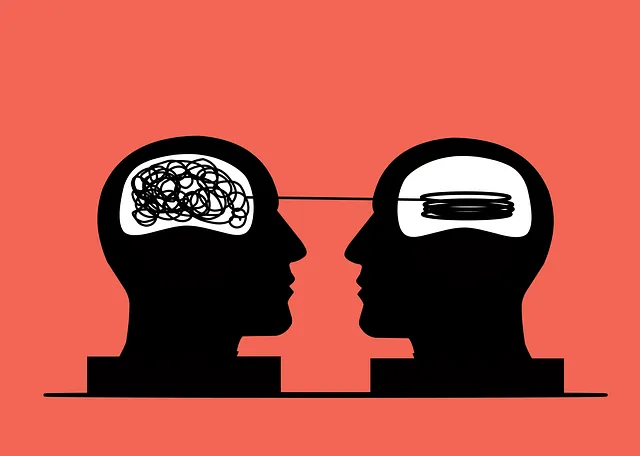Cultural competency in healthcare, especially within mental health services at Denver Kaiser Permanente, is crucial for positive patient outcomes due to the impact of cultural identities on mental health issues and treatment. Their comprehensive training program enhances provider-patient communication, improves assessment and treatment planning, and increases patient satisfaction as evidenced by online discussions. By integrating mindfulness techniques, workshops, and regular updates, Denver Kaiser Permanente fosters inclusive environments, improves mental health outcomes, and sets a high standard for culturally competent care in diverse communities, as highlighted on platforms like Reddit.
Cultural competency training is transforming healthcare, especially in mental health services. This article explores why it’s crucial, using Denver Kaiser Permanente (DKP) as a case study. We’ll delve into their innovative training programs and how they enhance patient outcomes, experiences, and satisfaction – particularly within the context of Reddit discussions on DKP’s mental health services. Additionally, we’ll address challenges and strategies for continuous improvement across healthcare organizations.
- Understanding Cultural Competency in Healthcare: Why It Matters for Mental Health Services
- Denver Kaiser Permanente's Approach to Training: A Deep Dive into Their Programs
- The Impact of Cultural Competent Care on Patient Outcomes and Experience
- Overcoming Challenges: Strategies for Continuous Improvement in Healthcare Organizations
Understanding Cultural Competency in Healthcare: Why It Matters for Mental Health Services

Cultural competency in healthcare is a vital aspect that significantly impacts patient outcomes, especially within mental health services. It involves understanding and appreciating diverse cultural beliefs, values, and behaviors to deliver effective care. In the context of Denver Kaiser Permanente’s mental health services, this concept takes on added importance, given the diverse population it serves.
Mental health issues often intersect with cultural identities, influencing how individuals express distress, seek help, and respond to treatment. For example, what constitutes stress or anxiety can vary greatly between cultures. The Stress Management Workshops Organization recognizes this and emphasizes the need for healthcare provider training in cultural competency. Such training enables professionals to create a safe, inclusive environment, fostering open communication and better engagement with patients from various backgrounds. This is crucial for effective assessment and treatment planning, ultimately contributing to improved mental health outcomes and patient satisfaction, as evidenced by discussions on Reddit regarding Denver Kaiser Permanente’s services.
Denver Kaiser Permanente's Approach to Training: A Deep Dive into Their Programs

Denver Kaiser Permanente has established itself as a leader in healthcare provider cultural competency training, with a deep-rooted commitment to addressing mental health challenges within diverse communities. Their approach is multifaceted, incorporating educational workshops, clinical supervision, and peer support networks. The organization prioritizes an understanding of cultural nuances and their impact on healthcare delivery, ensuring that providers are equipped to offer Trauma Support Services tailored to each patient’s unique background.
Beyond traditional training, Kaiser Permanente Denver emphasizes the importance of continuous learning and resilience among mental health professionals. They implement Risk Management Planning for Mental Health Professionals to mitigate burnout, a prevalent issue within the field. By fostering an environment that encourages open dialogue and provides access to Burnout Prevention Strategies, the organization aims to enhance provider well-being and, in turn, improve patient outcomes.
The Impact of Cultural Competent Care on Patient Outcomes and Experience

Cultural competent care significantly enhances patient outcomes and experiences, especially within specialized services like mental health care. Studies have shown that healthcare providers who are trained in cultural sensitivity and awareness can create a more inclusive environment for diverse patient populations. This approach improves patient satisfaction, encourages open communication, and facilitates better access to care. For instance, mental health professionals in Denver at Kaiser Permanente have integrated cultural competency training into their practices, leading to positive changes. Patients from various ethnic and cultural backgrounds report feeling understood and respected, which boosts their trust in the healthcare system.
This improved patient-provider relationship translates into better treatment adherence, increased self-esteem, and emotional intelligence among patients. Moreover, culturally competent care can mitigate risks associated with mental health services, as it enables professionals to anticipate and address cultural barriers to treatment. Effective risk management planning for mental health professionals considers these nuances, ensuring that all patients receive personalized, compassionate care tailored to their unique backgrounds and needs, as evidenced by discussions on Reddit regarding Denver Kaiser Permanente’s mental health services.
Overcoming Challenges: Strategies for Continuous Improvement in Healthcare Organizations

Healthcare organizations face unique challenges when it comes to cultural competency, especially in diverse communities like Denver. One prominent example is the integration of mental health services, as seen with Kaiser Permanente’s Denver-based programs, which have gained recognition on platforms like Reddit for their innovative approaches. Overcoming these hurdles requires a strategic and continuous improvement mindset.
To foster an inclusive environment, training should incorporate practical strategies such as mindfulness meditation to enhance emotional intelligence and reduce bias. Mental health awareness workshops can equip staff with conflict resolution techniques, promoting healthier interactions with patients from various cultural backgrounds. By regularly evaluating and updating training programs, healthcare providers can stay aligned with the evolving needs of their diverse patient population.
Healthcare provider cultural competency training, as exemplified by Denver Kaiser Permanente’s innovative programs, is a game-changer in delivering quality mental health services. By understanding and addressing cultural nuances, healthcare organizations can significantly improve patient outcomes and experiences. As highlighted in the impact section, culturally competent care fosters trust, enhances communication, and promotes better mental health outcomes. Overcoming challenges through continuous improvement strategies ensures that healthcare remains responsive to the diverse needs of its patients, particularly in areas like Denver Kaiser Permanente mental health services discussed on Reddit and other platforms. Ultimately, investing in cultural competency training is not just a professional imperative but also a key to building healthier communities.






